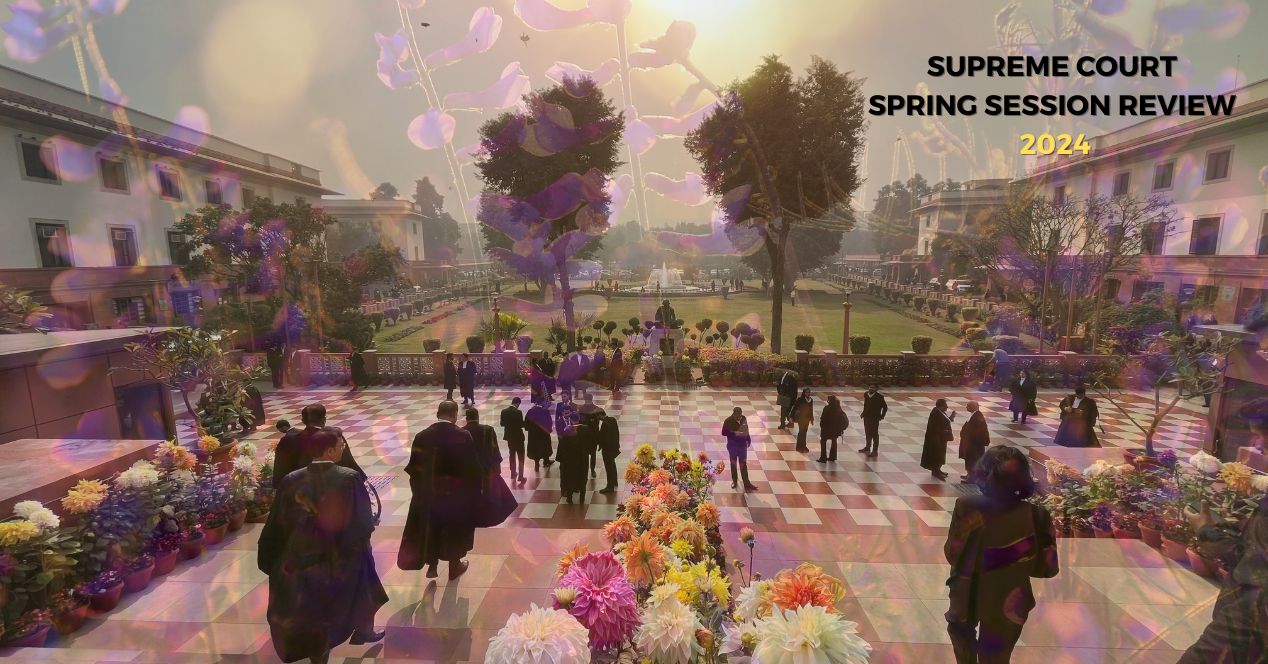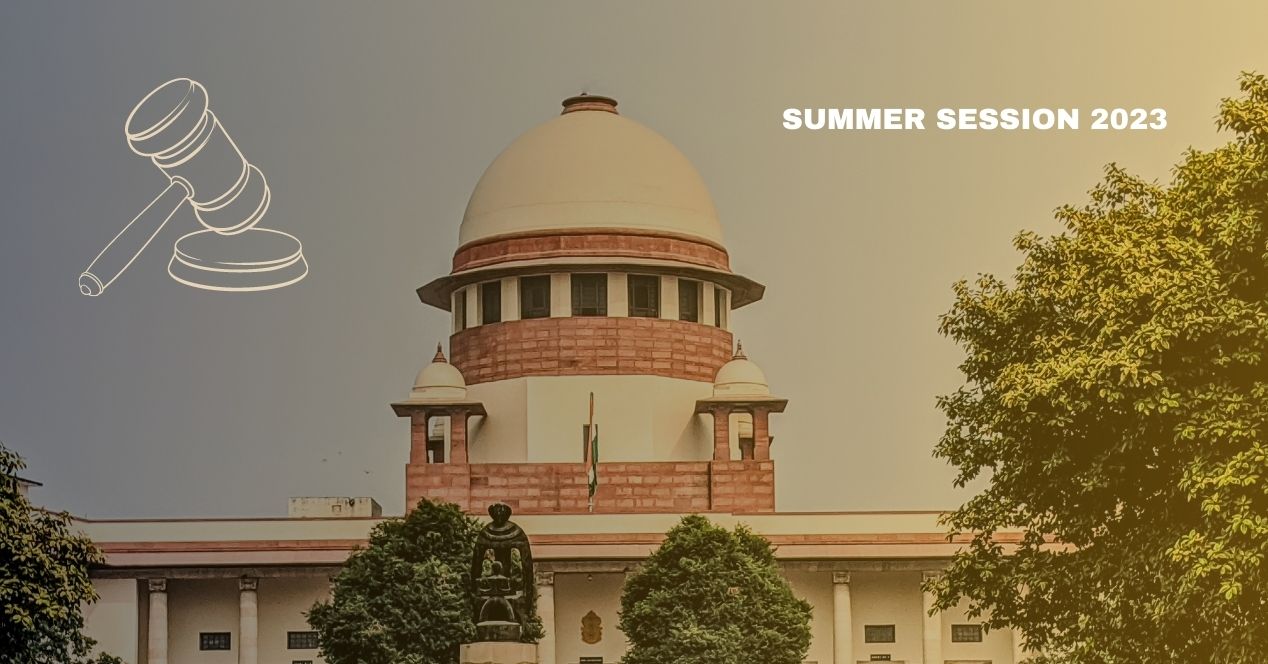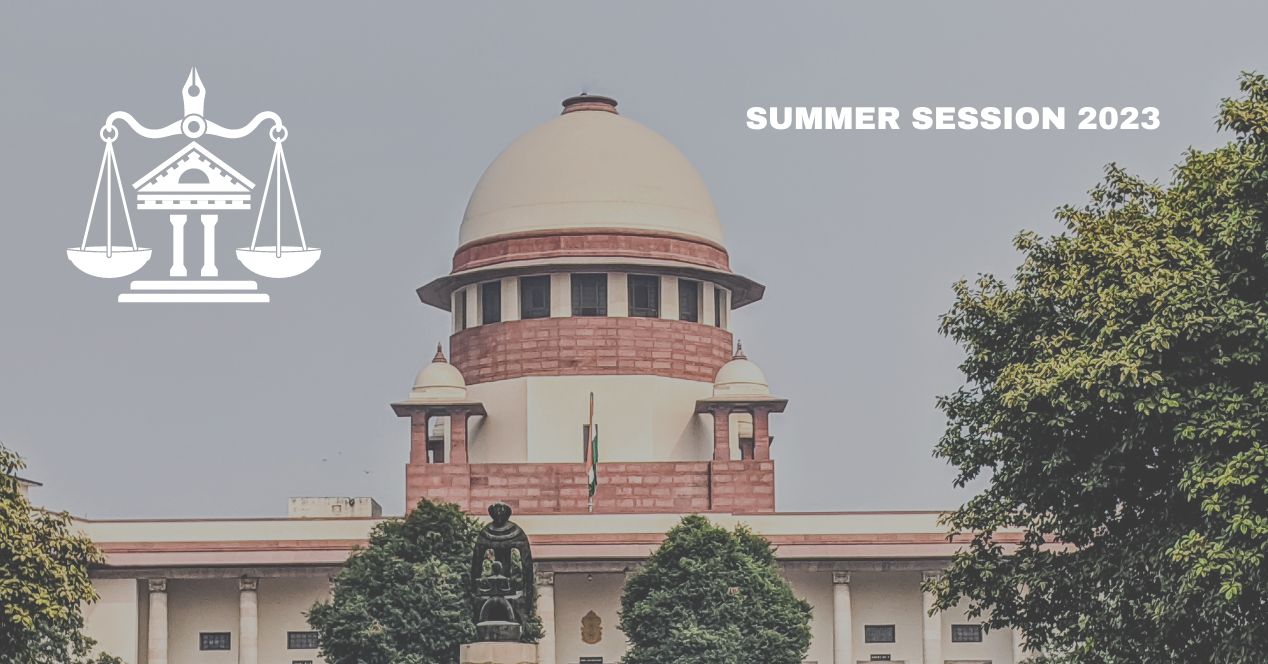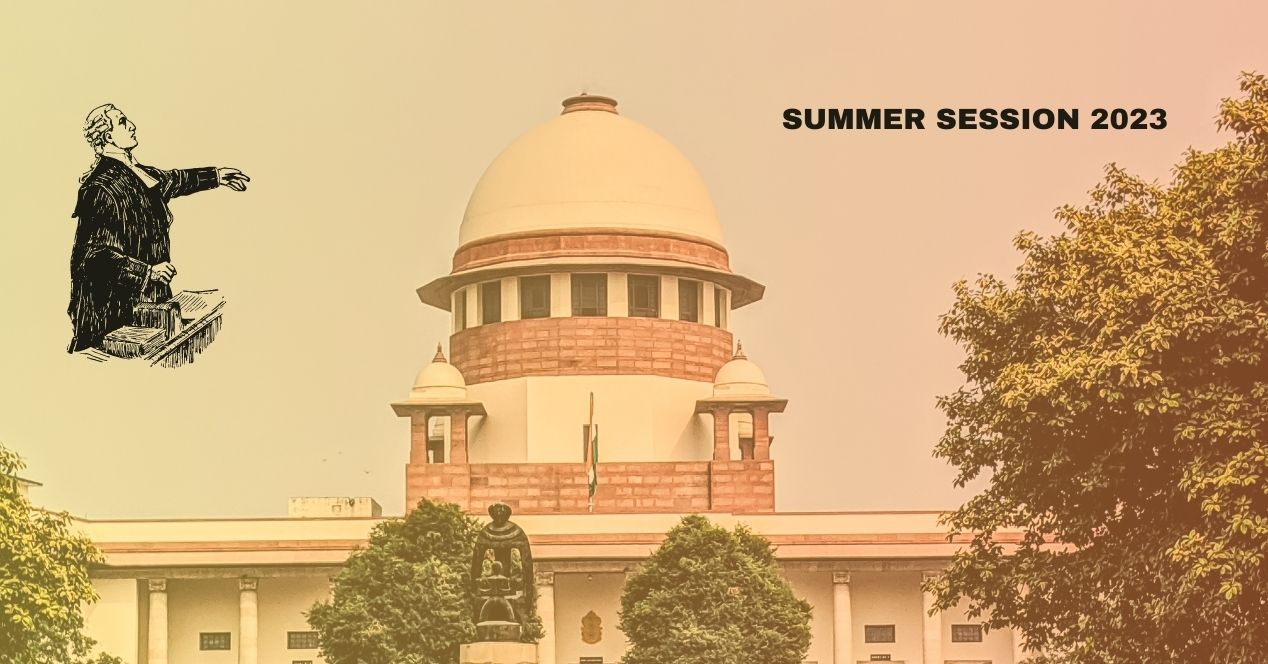Analysis
2024 Summer Session Review
Nine-judge cases, a welcome check on the ED’s powers, a questionable arbitration order—it was action-packed summer at the top court
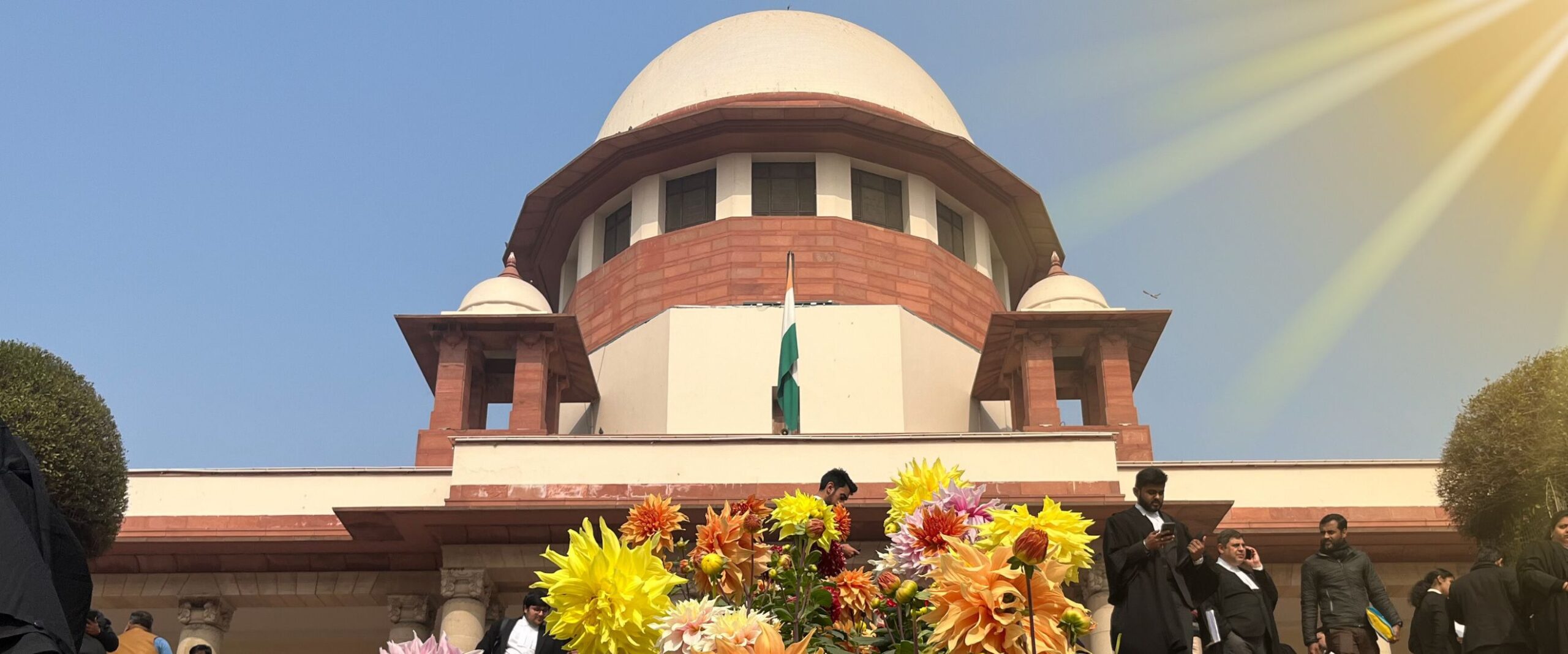
This is a review of the Supreme Court Summer Session from 1 April to 20 May 2024. We’ve also included some activity on the Vacation Benches.
This Summer Session of the Supreme Court was dominated by two nine-judge benches that heard long-pending cases that could have significant practical ramifications. One was a Union versus state dispute about the regulation of industrial liquor; and the other was about whether private property can be considered as a ‘material resource of the community.’ The judgements in both these matters are among the most eagerly awaited this year.
The Summer Session also ran contemporaneously with India’s mammoth seven-phase General Election season. Two chief ministers approached the Court for bail so that they could campaign. Delhi CM Arvind Kejriwal got interim bail from his arrest by the Enforcement Directorate (ED) but former Jharkhand CM Hemant Soren had to withdraw his plea.
The Supreme Court was also asked to weigh in on several cases where electoral transparency was in question. In one, the Court rejected a plea for 100 percent VVPAT verification. In another, it deferred the plea seeking the publication of Form 17C (which records voter turnout in every constituency) until after the court vacation.
In a judgement that could prove significant in curbing the ED’s wide powers, the Court clarified that the agency has no power to arrest an individual after a Special Court dedicated to hearing cases under the Prevention of Money Laundering Act has taken cognisance of the offence. The decision was lauded by practitioners.
But the Court came in from some criticism for its ruling in an arbitration matter involving the Delhi Metro Rail Corporation. By overturning the order of the tribunal in a curative petition, the Court was called out for putting a spoke in the wheel of India’s pro-arbitration efforts.
Institutional changes included two retirements and consequent changes in the Collegium. As the Court went into its longest vacation of the year, the Chief constituted 20 Vacation Benches to address urgent matters.
Note: Although the Supreme Court lacks an official session calendar, for analytical clarity, we at the Supreme Court Observer have divided it into four sessions: Spring (January to March), Summer (April to June), Monsoon (July to September), and Winter (October to December).
Quick Facts
Working Days: The Supreme Court worked 32 days between 1 April and 19 May 2024, before it broke for its annual summer break on 20 May 2024. The Court reopens on 8 July. During these seven weeks, the CJI constituted 20 Vacation Benches to adjudicate urgent matters.
Quorum: In the summer session, the Court functioned at full sanctioned strength only for eight days owing to a retirement each in both April and May.
Appointments and Retirements: The Court saw two retirements this session and no new Collegium recommendations. Justice Aniruddha Bose retired on 10 April 2024, after nearly five years at the top court. He authored a total of 67 judgements during his tenure, including ones in the challenges to Jallikattu and the legislation on the appointing Election Commissioners.
Just before the summer break, Justice A.S. Bopanna retired after serving a term of five years. During his tenure, he authored 91 judgements and was on the Bench in some crucial cases like the challenge to the Union’s 2016 Demonetisation Scheme and legislative immunity in bribery cases.
Constitutional Bench Cases:
Decisions: None
Hearings:
- Started on 2 April 2024 —Regulating Industrial Liquor—Hearing for 6 days—nine-judge bench
- Started on 23 April 2024 — Nature of Private Property—Hearing for 5 days—nine-judge bench
Pendency:
- 35 five-judge matters are pending, with 289 tagged matters.
- 8 seven-judge matters with 38 tagged petitions
- 7 nine-judge matters with 136 tagged petitions
Total Pendency: 83,602
Note: This data was collected from the National Judicial Data Grid on 19 June 2024.
Constitution Bench Hearings:
Tussle over regulation: The summer session began with a nine-judge Constitution Bench examining whether the Union or the states have the power of regulating industrial alcohol.
Much of the case hinges upon the meaning of “intoxicating liquor.” When framers of the Constitution vested power over intoxicating liquor to the states, did they mean to cover potable alcohol or did they mean all alcohol, since all alcohol has an intoxicating element? The Court’s decision will inform whether state governments or the Union can regulate industrial alcohol.
State governments argued it was crucial for them to have control over tax revenue in the post-GST era. They also argued that the state’s control over industrial alcohol was key to ensure that it is not illegally sold as drinking alcohol. The Union argued that control over industrial alcohol was crucial for certain long-term development projects that the Centre has envisioned, such as the National Biofuel Policy. They also argued that their control would be important in cases of national crises, such as the COVID-19 pandemic, when production of hand sanitisers and disinfecting spirits were needed.
Judges: D.Y. Chandrachud CJI, Hrishikesh Roy J, A.S. Oka J, B.V. Nagarathna J, J.B. Pardiwala J, Manoj Misra J, Ujjal Bhuyan J, S.C. Sharma J, A.G. Masih J
Links: SCO’s Case Page | SCO’s Arguments Matrix | Video Explainer | Commentary
Is private public?: On 23 April, nine judges assembled again—this time to determine if private property can be considered a “material resource” of community” under Article 39(b) of the Constitution.
The lead appellant in this case is a landlord association from Mumbai whose properties are in threat of being taken over by the Maharashtra Housing and Area Development Authority (MHADA). They stood firm that private property did not fall under the ambit of national resources. The Union, on its part, urged the Court to give Article 39(b) a wide interpretation.
There’s also a knotty constitutional question at the heart of the case— the legality of Article 31C of the Constitution. This provision was enacted to save laws giving effect to clauses (b) and (c) of Article 39 from being declared void for violating Article 14, 19 and 21. In Minerva Mills (1980), the Court had struck down an amended version of the Article.
The question before the Court is if the pre-amended version survived. If it did, the landlords would not be able to challenge the MHADA law on the ground that their fundamental right had been violated by the takeover of their property. That’s why the landlord association contended that the law was a dead letter but the Union relied on the doctrine of revival to argue that the provision still exists and is active.
Judges: D.Y. Chandrachud CJI, Hrishikesh Roy J, B.V. Nagarathna J, Sudhanshu Dhulia J, J.B. Pardiwala J, Manoj Misra J, Rajesh Bindal J, S.C. Sharma J, A.G. Masih J
Links: SCO’s Case Page | Arguments Matrix |Commentary
Division Bench judgements
No need for complete verification: In a crucial case concerning electoral transparency, the Supreme Court rejected a petition seeking 100 percent verification of votes cast on Electronic Voting Machines through the Voter Verified Paper Audit Trail (VVPAT) system. The court reasoned that the petitions were based on mere suspicion without any cogent evidence. The Court recorded all the safeguards by the Election Commission of India (ECI) to guarantee free and fair elections to ensure that similar petitions are not filed.
The Bench also rejected the idea to reintroduce ballot papers and noted that the voter could verify their vote during the seven-second window when the VVPAT displays the vote slip.
Reining in power: In July 2022, a three-judge bench of the Supreme Court upheld the wide powers of the Enforcement Directorate under the Prevention of Money Laundering Act, 2002 (PMLA).
On 16 May 2024, a Division Bench imposed a narrow check on the ED’s wide powers. The Court held that the ED cannot arrest an accused under the PMLA after a Special Court takes cognisance of the offence.
Observers have noted that this decision works as a narrow check on the “ED is not police” argument that the Court had endorsed in its decision in Vijay Madanlal Choudhury (2022). Since the point of issuing summons was to present the accused in court and not take them into custody, it was not necessary to arrest every accused even as the investigation is ongoing.
Additionally, the Court emphasised that a Special Court constituted under the PMLA shall follow the procedure for trial laid down under the Code of Criminal Procedure, 1973. It is only when certain procedures under the PMLA are in contradiction with the CrPC, the courts shall follow PMLA.
Rituals must be respected: On 19 April 2024, a Division Bench of the Court nullified a marriage that was evidenced by a marriage certificate but hadn’t been solemnised with the required rituals under the Hindu Marriage Act, 1956 (HMA). The Bench led by Justice B.V. Nagarathana remarked that a “marriage is not an event of ‘song and dance’, and ‘wining and dining’ but a “sacred process.”
The Court noted that rituals and ceremonies were essential features of a Hindu marriage as per Section 7 of the HMA. The Order noted that registration of marriage could serve as proof but does not confer legitimacy to the union.
Adjudicating arbitration: In a case where it held in favour of the Delhi Metro Rail Corporation (DMRC), a public entity, the Court may have undone its progressive jurisprudence and messaging on India as a pro-arbitration jurisdiction. The Court exercised its curative jurisdiction to overturn an award of Rs. 7500 crores (with interest), reasoning that the tribunal had not sufficiently considered a safety certificate while assessing its evidence.
The curative petition was the third time the matter was litigated in the Supreme Court, and the sixth time overall, counting two rounds of litigation in the Delhi High Court and the original proceedings before a tribunal. Experts have pointed out that with its decision in this Delhi Metro case, the Court may have opened the floodgates to excessive litigation.
Challenge under wait: Just before breaking for summer vacation, a Division Bench of the Court granted interim bail to Arvind Kejriwal, Chief Minister of Delhi. The judgement based its decision on a “right to campaign” in light of the ongoing Lok Sabha election and the upcoming polling day in Delhi.
On the wider challenge of Kejiriwal’s arrest by the ED, the Court reserved judgement on 17 May 2024. On 29 May 2024, the Registrar of the Supreme Court rejected Kejriwal’s plea seeking an extension of the interim bail granted to him by the top court on 10 May 2024. The Registry reasoned that the plea did not disclose any reasonable cause and it was not related to the main petition.
Recently, on 20 June 2024, a trial court in Delhi granted bail to the sitting CM. However, on appeal by the ED, the Delhi High Court stayed the trial court’s decision but without releasing an order giving reasons. The case is now before a Vacation Bench of the Supreme Court, which will decide the matter once the High Court order is out.
No interim bail: Days after the Court granted interim bail to Kejriwal to campaign, former Jharkhand CM Hemant Soren also knocked on the doors of the Court. However, the plea was ultimately withdrawn. A Vacation Bench of the Court noted that his petition did not disclose key facts about a pending application before a Special Court. The Court remarked that Soren had not approached the Court with “clean hands”, forcing Soren’s counsel to withdraw the plea.
Though it was a tale of two CMs arrested under similar charges, a different plotline led to contrasting outcomes. The key difference was that a Special Court had taken cognisance of the offence in Soren’s case. Further, Kejriwal’s plea was limited to challenging the arrest but Soren’s both challenged the arrest and requested interim bail. Lastly, Kejriwal was arrested after the Model Code of Conduct had come into play. Soren had been arrested in January.
Seniority or merit? : In April, judicial officers from Gujarat approached the top court against the High Court’s notification of the appointment of 68 judicial officers in the state. The petitioners claimed that the High Court ignored their merit. The High Court’s counsel contended that the test is not the only criteria for appointment and other factors like disposals, judgements, etc. are also taken into consideration.
No publication for now: In another plea before the top court, the Association for Democratic Reforms filed a plea requesting the Court to order the Election Commission of India to publish in Form 17C, which records voter turnout in every constituency, within 48 hours of elections. A Vacation Bench adjourned the petition to after the break.
Advertise carefully: The top court also pulled up Patanjali Ayurved for their misleading advertisements while issuing a slew of directions to be followed by companies at the time of advertising a product or service. It is now mandatory for publishers to file a self-declaration form acknowledging adherence to advertisement-related rules.
Court News
Change in Collegium: With Justice Aniruddha Bose’s retirement, Justice Hrishikesh Roy became part of the Collegium as the fifth senior-most judge of the Supreme Court. The Court is expected to fill up its two vacancies in the Monsoon Session.
Change in SCBA: The Supreme Court Bar Association saw a change of guard following elections to its executive committee. Senior Advocate Kapil Sibal’s last-minute entry paid off as he returned to the helm of affairs as SCBA President after almost two decades. Along with Sibal, the SCBA also elected 15 Senior Executive Members. In a first for the SCBA, one third of seats were reserved for women.
Court Data
The delay continues: Even as 61,67,571 cases remain pending across India’s 25 High Courts, vacancies on the bench remain largely unaddressed. Read our analysis here.
The tenure shortens: The average tenure of the Chief Justice of India, from the first to the current Chief Justice, has been 18.1 months. This is likely to fall to 16.95 months in the coming decade. Read our analysis here.
For more such insights and information, do visit the Court Data section on the SCO website.
Shubh Naik, an intern at the SCO, contributed to the data collection and writing of this review.

